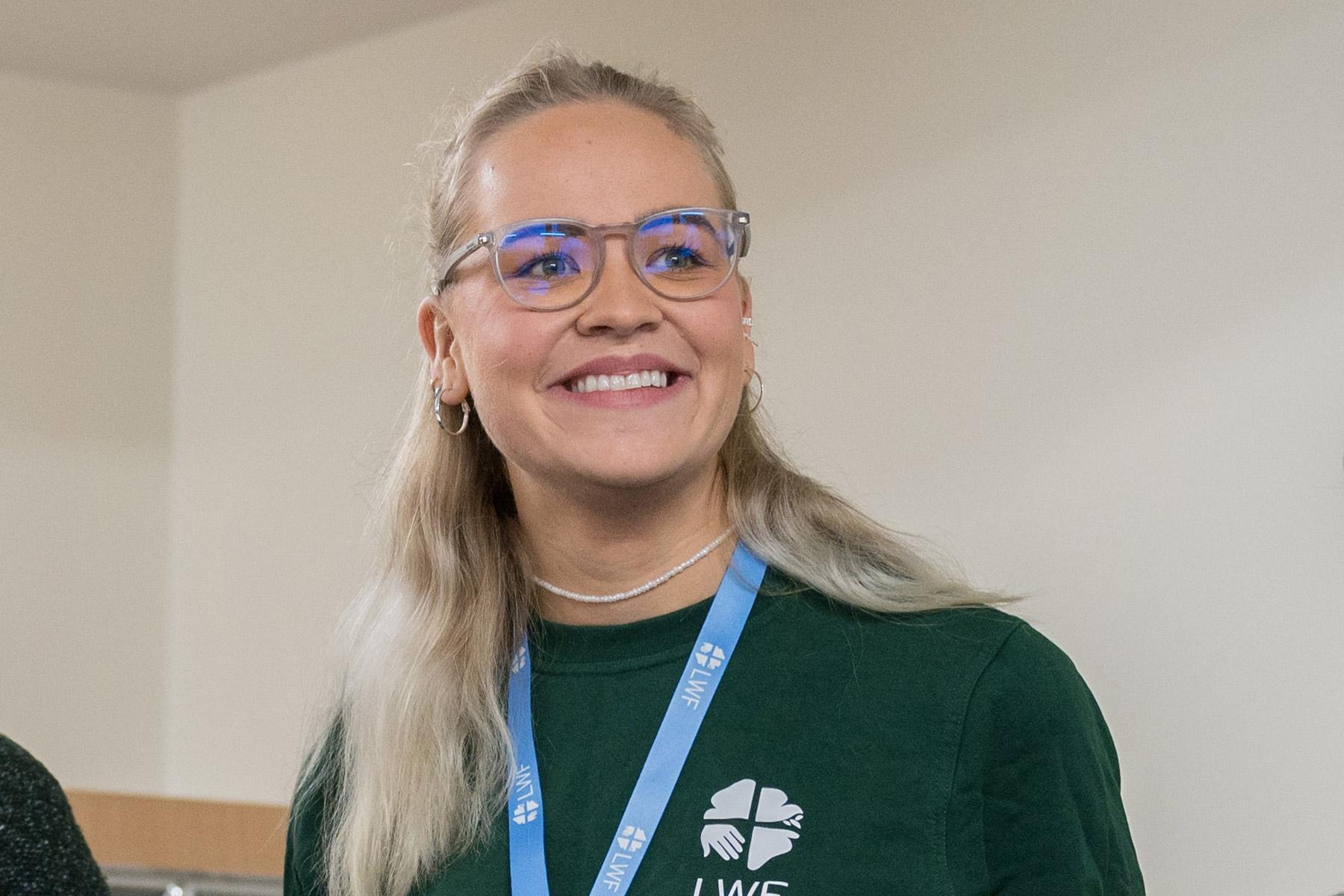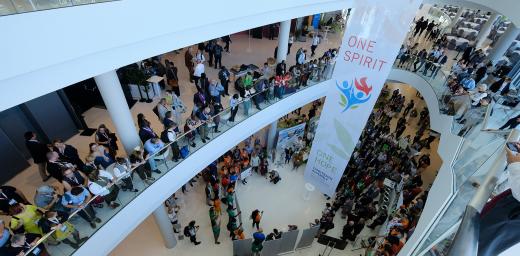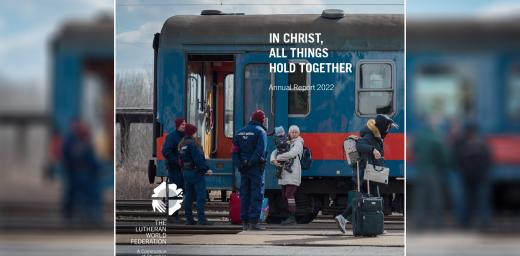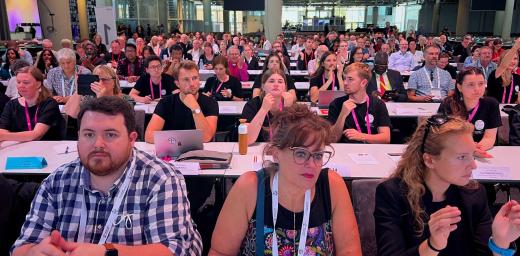Voices from the Communion: Nora Antonsen from the Church of Norway
(LWI) - Nora Antonsen has come a long way from her small village of Grovfjord in the far north of Norway. Growing up there, she spent long hours on her own in the church practicing the organ and singing, two of the many hobbies that she pursued with passion. “I have always loved doing many different things and pushing myself to the limits,” she says.
Today, aged 25, Nora lives in the city of Trondheim and is busy studying for a master's degree. At the same time, she works with an ethical start-up company called NAYA and is very active as a former moderator of the Church of Norway Youth Council. As a member of LWF’s delegation to the COP conference in Glasgow, she is passionate about climate justice and she is also preparing to serve as a youth delegate at the LWF Assembly in Krakow.
Tell us about your family and how you first got involved in the church?
I am from a traditional Christian family, which means that being Christian was part of the tradition, rather than requiring active involvement. I got more involved through the youth program, then I joined the choir and started to play the organ. After confirmation, I got involved in church politics and saw that I could make a difference, first in my local community, then at regional and national level. So, I found my own place in the church and my faith grew too – and I think that is true for many Norwegian youth nowadays.
Church membership is quite high in Norway compared to most other European countries – why do you think this is?
When we talk in general about the Nordic churches, as I saw in the Nordic Pre-Assembly, we can see that membership is going down, but that is natural as the countries are getting more diverse. I think youth become involved because they are still baptized by their parents, but they also discover a community and a sense of belonging.
Young people want to figure out their spirituality, they are interested in personal growth and they can find that through God like I did. Also, I think social justice is a big factor for them and seeing that the church is willing to change, that is a key driver for youth to become more engaged.
Until last year, you served as moderator of the Church of Norway Youth Council – what did that role entail and what did you learn from it?
The moderator of the Youth Council and Youth Synod is elected for two years and it was a cool experience for me because our church is going through shifting times, moving from state church to trying to find new ways of fitting into the wider community. Part of that process is empowering youth structures, so now we have a bigger voice than before and that really inspired me to become more engaged.
I spent a lot of time on this, but I could see how even young fourteen-year-olds were motivated as they realized that their voices were represented in the Council through me and my position. Even now that my term is finished, I try to be present, to contribute or participate at events whenever I can to inspire others to make an impact.
What are the areas where you would like to see the churches acting and playing a bigger role?
I saw at the Pre-Assemblies that young people in all the regions are concerned about leadership and youth structures. It is important for us, not just to be present at events, but to have our opinions taken into consideration, as this motivates us to become even more active.
At the European Pre-Assembly, we also highlighted mental health which has been such a big topic during the pandemic, but also beforehand as well, because young people face so many pressures from social media. The church preaches a message of inclusion and belonging, a place where you can come as you are, where you can find support if you’re grieving, but young people are not always hearing this message. Also, climate change is another key area that young people are very concerned about.
You were a part of the LWF delegation to the COP conference in Glasgow – how important was that experience for you?
I can say it was a milestone in my life because I had heard of LWF, but I had never had any real connection until I went to Glasgow. That experience impacted many of my decisions as I saw how religious communities were coming together and being a stronger presence than before. I was inspired to see how civil society can have an impact on policies but also how difficult it is to influence policies at a global level. COP also inspired my studies as I witnessed the way companies make products that can help those most affected by climate change
Now you’re doing a Master’s in entrepreneurship and innovation, aren’t you – what do you hope to do after your studies?
Yes, I’ve got one year to go but I also studied four years of physics and COP inspired me to bring these subjects together. It really highlighted the importance of sustainable solutions and how we can make an impact in our own fields.
I am already engaging with a start-up called NAYA doing image annotation (labelling images to train machine learning models). The name means ‘new’ in Hindi and we are working with ten women from the slums of Dehradun in northern India, supporting them with everything from training and English language skills to childcare, transportation and a safe office environment. I love learning from them and from Norwegian companies about developing AI algorithms. We talk a lot about Hinduism and Christianity so that brings me full circle back to the church again.
You are preparing for the LWF’s Thirteenth Assembly in Krakow in September – what are your hopes for this global event?
My hope is that all the churches will hear a strong call to action, especially in the areas of climate justice and youth empowerment. I have seen how the LWF can play an important role in supporting youth work and I hope that whatever is decided can be easily translated and understandable for young people. Eco-theology, for example, is a vital tool for empowering youth so we need a language that can be easily understood.
I was also inspired to see the Africa Pre-Assembly highlighting entrepreneurship and innovation and I hope we can discuss and develop what this means for our churches. And the traditional themes of justice and peace are so important too, especially for us in Europe at this time. These are complex themes, so I hope we can listen and ask questions, trying to learn and to understand the full picture.
The Lutheran World Federation is a global body that shares the work and love of Christ in the world. In this series, we profile church leaders and staff as they discuss topical issues and set out ideas for building peace and justice in the world, ensuring the churches and communion grow in witness and strength.






